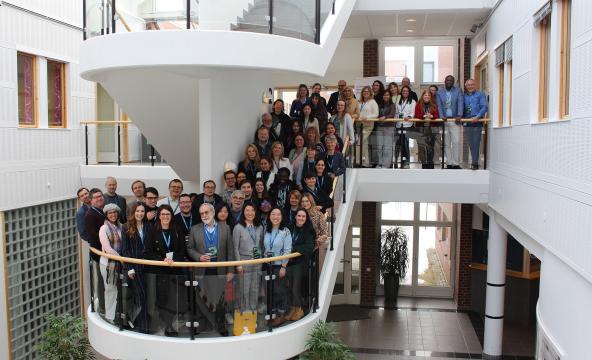
This article is more than one year old.
Associate Professor Natalia Andreassen who is coordinating the SECUREU project from Nord university, together with Associate Professor Ensieh Roud from NORDLAB at the Nord University Business School, were engaged in the first step of the process – to learn about skills and qualities that young professionals in security field need at the start of their careers and in order to become good members of security teams.
This is an international educational project with six EU countries participating. In this project we are developing different study materials in security risk management field, prepare recommendations on how and what to teach to security students, including video lessons and exercises for students.
ERASMUS+ SECUREU project partners organised six round table discussions in Latvia, Lithuania, Finland, Spain, the Netherlands and Norway. We gathered security and risk management specialists to ask their opinion about questions like what we should teach to young security specialists, what skills are missing, what the future perspectives and perceived risks are for the security field.

It seems that all countries have similar expert opinions on the future of security field and crucial skills of security specialists. Experts from all countries highlighted several skills groups which are important for young security specialists and should be improved – soft skills, including analytical skills to manage information, strategic thinking capacities, better management, as well as organizational and leadership skills. It is important to develop abilities to manage information security, cyber-security, technological and digital literacy.
At the same time most of professionals highlighted the importance of having a common basic education for all security personnel so they can have the same understanding. At last, practice, exercises and problem-based education may contribute to connecting the educational content to practical use.
As a next step, seven partners from the six different countries are doing a survey on the opinion of students and teachers about security situation in their countries. The results will help to adjust the educational content and prioritise contents of discipline fields of security, risk and emergency management.
The survey aimed at students, earlier students, teachers, researchers or advisors in security or any risk- related subjects is published. It is still possible to contribute, helping us shape the future education of young security professionals!

SECUREU: Digital Educational Tools for Security Risk Management is an Erasmus + strategic partnership project funded by the European Union. Partners are: Turība University (Latvia), Kazimieras Simonavičius University (Lithuania), Laurea University of Applied Sciences (Finland), Nord University (Norway), Avans University of Applied Sciences (the Netherlands), Fundació Universitat Autònoma de Barcelona (FUAB) (Spain), Biedrība "Drošības profesionāļu asociācija" (Latvia).
Learn about the project and our activities: http://security.turiba.lv







